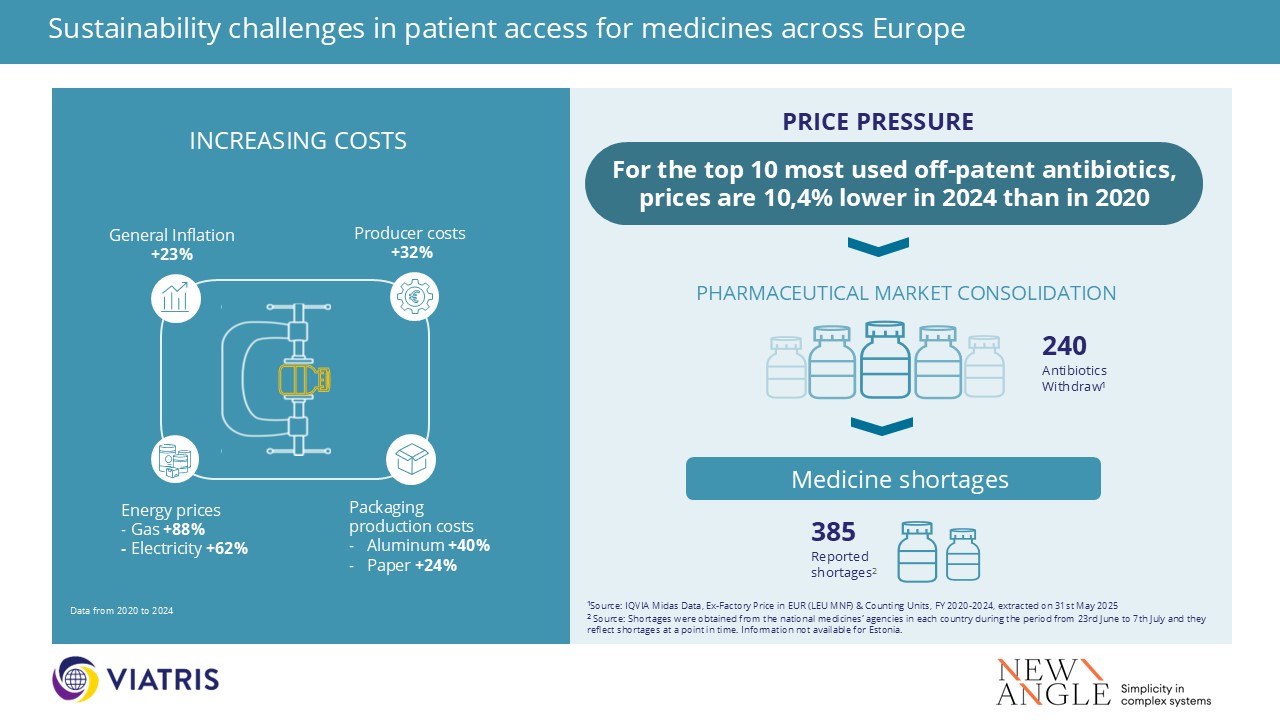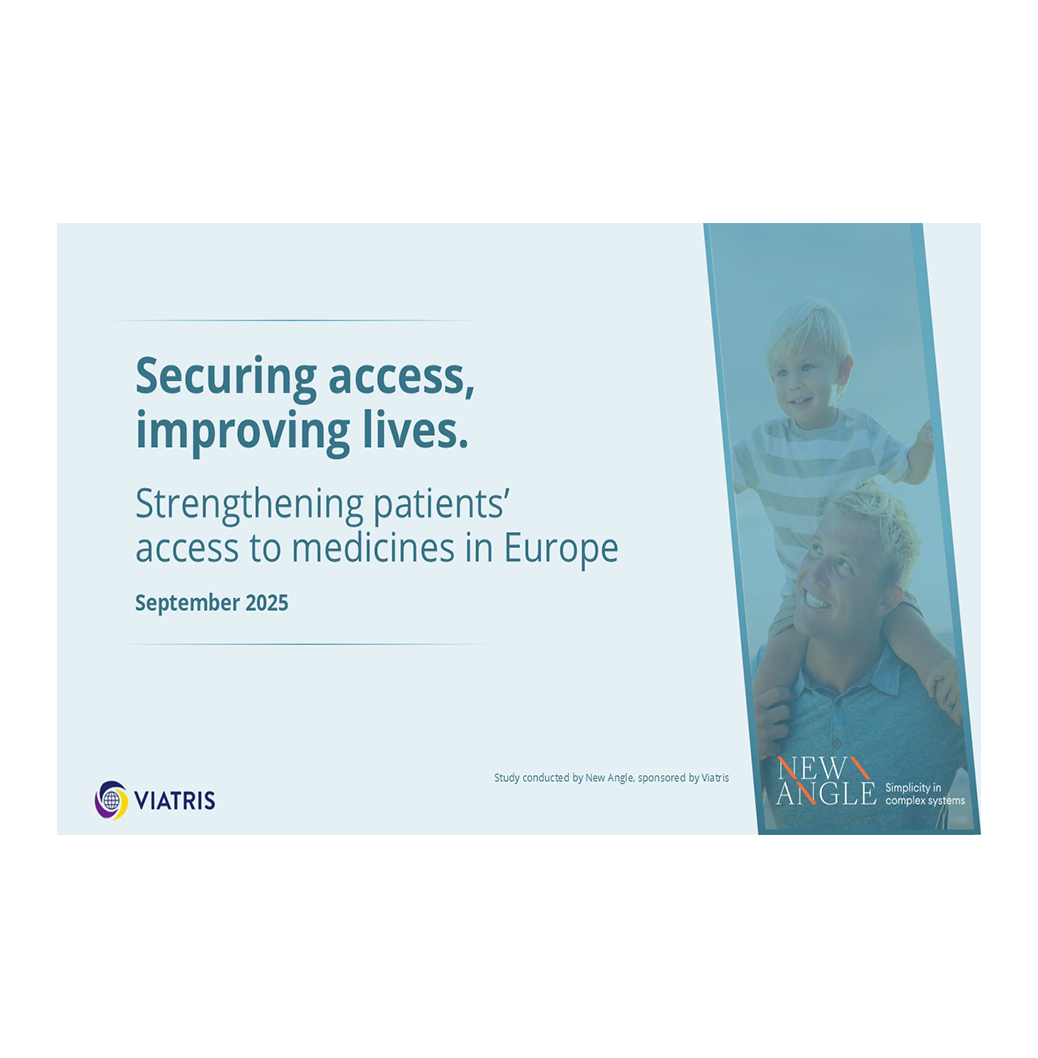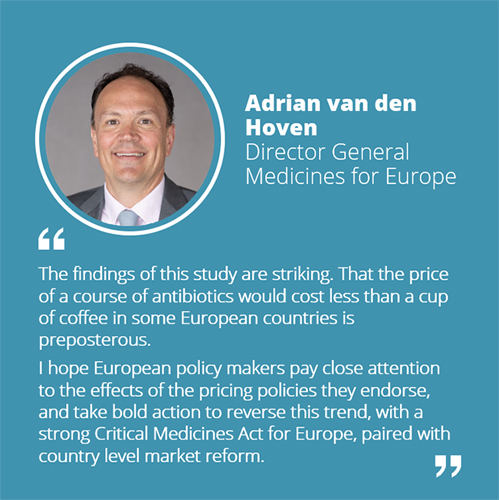Download key findings report
Download the full report
Download the infographic
Viatris press release Sept 2025
- Amidst the backdrop of widespread medicine supply challenges across Europe, a new independent study investigates the reasons behind the shortages of essential off-patent medicines, with a particular focus on antibiotics.
- The study, conducted in 16 countries (Austria, Belgium, Croatia, Estonia, Finland, Germany, Hungary, Ireland, Italy, Norway, Poland, Portugal, Spain, Sweden, Switzerland and the United Kingdom) confirms that shortages of key antibiotics, like amoxicillin and azithromycin, result from a confluence of factors including rising production costs and persistent price decreases.
- The study shows that between 2020 and 2024, the average price of the top 10 off-patent antibiotics dropped by 10%, despite sharp increases in production costs and inflation.
- These dynamics are driven by national pricing systems that do not give the possibility to manufacturers to increase prices even when facing steep cost increases, further limiting patient access to essential medicines in Europe. Therefore, the study calls for reforms to national pricing and procurement systems to secure patient access to medicines.








